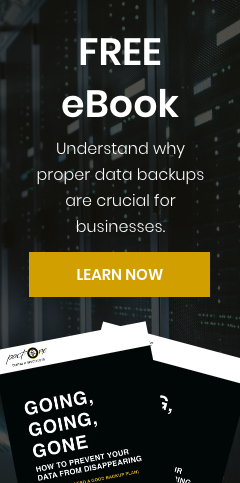Over 60% of data breaches can be traced to weak credentials. Employees reuse passwords or create ones that are easy to remember. Many employees add a number to their passwords and increment them each time they are forced to make a password change. These practices make it easy for hackers to gain access to a network.
5 Ways Your Employees Can Participate in Cybersecurity

As a small- to medium-sized business (SMB) owner, keeping your dental clinic’s valuable data safe should be a priority. Cybercriminals often target SMBs and healthcare organizations because compared to larger corporations, these entities often lack the technology and manpower to run an efficient cybersecurity system, making them easier to infiltrate.
Keeping Your Network Secure
The Importance of Email Encryption for Dental Practices

Cybercriminals have many opportunities to intercept confidential data. But if your data is encrypted, it’s much more difficult for your data to be compromised – should a cybercriminal succeed in getting their hands on it.
As with any other healthcare provider, dental practices must comply with HIPAA and HITECH legislation – requiring that all communications be encrypted.
Top 5 Dental Software Solutions for Practice Management

In the modern healthcare industry, dental practice management software is essential to practice success. Using the right software, you can increase employee productivity, boost operational efficiency, and regain control over costs. Today, many dental practice applications are cloud-based, which means they are accessible from any device with an internet connection.
Improving Patient Experience with a Dental MSP

Every aspect of your practice affects patient care and the patient experience. The decisions you make about managing your dental IT solutions are patient-care decisions as much as they are business decisions.
However, dental IT requirements can overwhelm practices, especially in small and mid-sized organizations.
A Day in the Life of a Field Service Technician

Field engineers have busy schedules - with unforeseen occurrences happening every day. In this article, we’ll get answers from our field engineer, Victor Hanson, on what he encounters on a given day, and how technology can play a role in keeping him on track from the first appointment of the day to the very last - ensuring clients are well taken care of.
Summer Cleaning Guide: Simple Updates to Help Make Your Dentrix Database Run Faster
VoIP Phones: Creating More Streamlined Communication For Your Practice

Communication is the bloodline of efficient dental practices. You need to engage with patients, particularly new patients, as quickly and efficiently as possible. Practices use different ways to accomplish this, such as email or onsite chat systems. Others have implemented VoIP or Voice over Internet Protocol.
A CEO’s Reflection from CDA Anaheim

Last week, Pact-One had the privilege to attend the CDA's The Art and Science of Dentistry in Anaheim, CA. This was the first in-person event in Southern California since the start of the pandemic. It was amazing to see so many businesses looking to impact the dental industry, both in southern California and across the nation.

![Two-Factor Authentication [2FA] for Dental Practices](https://www.pact-one.com/wp-content/uploads/2022/10/2FAOCTBlog_Carlo.png)


